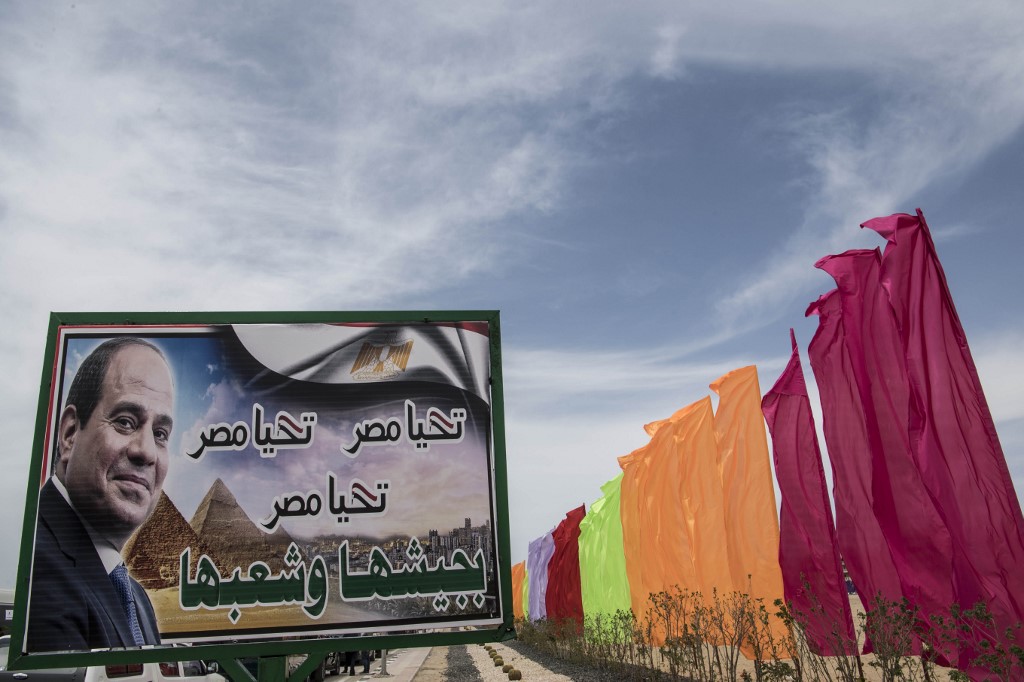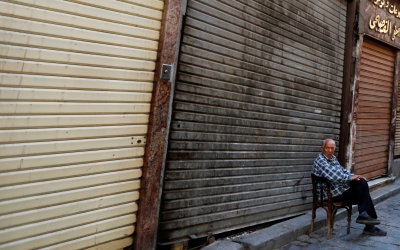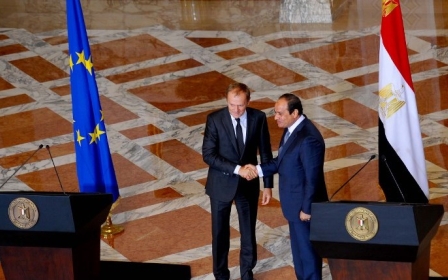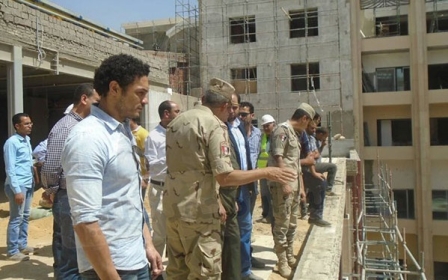Egypt's army controls much of the economy. Is this wise?
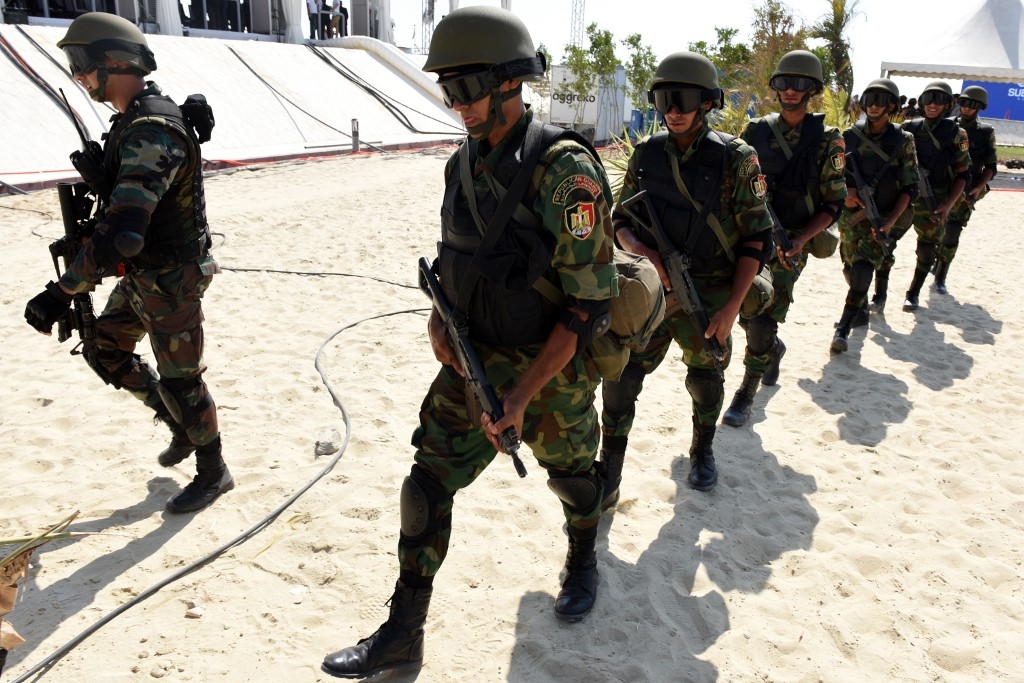
For decades, the Egyptian military has been allowed to engage in economic activities as a way of reducing the official defence budget.
The military economy also allows senior officers to be compensated for low pay and pensions, by giving them the opportunity to acquire extra income and fringe benefits. The overall volume of such economic activities was relatively modest until 2011, when former President Hosni Mubarak was forced out of power.
But since 2013, when the military took power, the military economy has transformed. This is because President Abdel Fattah al-Sisi, a former general who became president in 2014, has relied on the military to take over major management roles in the civilian economy.
The military has effectively replaced the government in awarding contracts and managing public infrastructure.
Managing infrastructure
But this approach overlooks the real structural problems in the Egyptian economy, including low productivity, low investment in all sectors except for energy and real estate, and low value-added, especially in technology-dependent sectors.
Just how much power does the Egyptian military have over infrastructure? It has been involved in infrastructure for decades, although for a long while, this involvement was relatively modest.
Sisi is looking to reinforce the political legitimacy of his regime domestically, and to show Western governments and foreign investors that Egypt means business
The military started by working on land reclamation - turning deserts into arable land. In the late 1970s, the army led the way in reconstructing cities and infrastructure along the Suez Canal that had been damaged severely during the war with Israel. But with that exception, its overall contribution to public infrastructure was fairly limited until 2011, when the revolution ousted Mubarak.
Since then, there’s been a major shift. The military now manages approximately a quarter of total government spending in housing and public infrastructure. That’s about 370 billion Egyptian pounds ($23bn), which might not seem like a lot compared to government budgets in the US or Europe - but in Egypt, it’s a great deal of money.
This is partly why the Egyptian government is now severely indebted. It gives a sense of the scale of the military’s work as compared with overall government expenditures on public infrastructure.
A different calculation
Until the 2013 takeover, the military’s economic activities functioned to keep the senior officer corps happy and loyal to the president, by allowing them perks.
Sisi, however, has made a different calculation. He is looking to reinforce the political legitimacy of his regime domestically, and to show Western governments and foreign investors that Egypt means business. He wants to demonstrate credibility.
He’s shown his contempt openly for the civilian agencies of his own state. He feels he can only trust the military to do the job on time, within budget.
This doesn’t mean he actually has an economic vision. He doesn’t understand how the economy works, how to get it going, how to generate jobs and growth, or how to increase revenue in a sustainable way. But the military is following orders. If he tells them to go build a new city in the sand somewhere, that is what happens.
So the military sinks enormous amounts of capital into unproductive projects, often damaging relationships with the private sector, because the military takes over management of and income from these projects.
In some cases, it’s actually producing things such as steel and cement. This crowds out private businesses, which dominate these sectors.
The political consequences are proving to be negative as well as positive. The economic consequences are increasingly negative, because Egypt is borrowing heavily to fund these projects.
Bad economists
To some extent, the military can sidestep the problems other businesses have to deal with, as the military is exempt from taxes and customs duties; but then, so are a lot of civilian companies.
The military’s main advantage is political influence. It has officers placed throughout the state apparatus who help get contracts. These officers also dominate the government’s main audit agency, which is instructed to inspect civilians to prevent corruption.
But this agency hasn’t been directed to audit the military, giving it a certain amount of legal cover. These are advantages that civilian competitors don’t have.
In terms of technical expertise, I doubt that the senior officers engaged in most of these activities are actually any more capable than the ministers or civilians working in some of Egypt’s larger private companies. The military always turns to those companies to undertake projects that it can’t implement.
So clearly, this isn’t really about technical expertise. It’s about political influence. And the problem here is that the military’s powerful political position means it doesn’t really have to account for genuine cost-effectiveness; the real problems are being kicked down the road.
In a nutshell, the military makes for good engineers, but bad economists.
Closed financial books
As to who reaps the profits of the military economy, it’s difficult to work that out exactly, because Egyptian military accounts are not shared with anyone either inside or outside Egypt. This includes the official budget, in addition to the financial books of the various military agencies involved in economic and commercial activities.
And of course, there’s an informal area where officers, both retired or sometimes in active service, get involved in other kinds of economic activities - some of which are illegal and corrupt, where we don’t know the figures until people get prosecuted. But that’s rare.
For the situation to change, a president would have to come to office in Egypt who grasps the need to dismantle parts of the military economy
What we do know, however, is that the military pays no taxes on any of its activities, and no customs duties on the goods it imports for these purposes. There are minor exceptions in the case of civilian goods produced by some military factories, and these get reported to the finance ministry. But otherwise, the vast bulk of the military’s economic activities are untaxed and unreported.
All officers who perform duties on behalf of military agencies undertaking economic activities get paid extra allowances and benefits for each task they undertake, and often get an extra salary if they run a military factory or a military farm.
And then there’s a share of profits - or of incomes before profits are calculated, because there’s not always a profit; a certain share of these are distributed to senior officers as well.
We don’t know the exact numbers, but we’ve got enough evidence from various sources to know that this is broadly how the profits are divided. Most importantly, no income coming into the military goes back to civilian agencies; it all goes into army funds.
The path forward
For the situation to change, a president would have to come to office in Egypt who grasps the need to dismantle parts of the military economy. To do so, the new president would have to carefully identify exactly which parts of the economy could be rolled back, while provoking the least resistance from the military - and military support would be needed for that.
At the same time, the new president would have to identify ways of compensating the military for the benefits and advantages it stands to lose. These would probably relate to pay and pensions, because those are what prompted the military’s involvement in the economy in the first place.
A version of this article was first published by the Carnegie Middle East Center.
The views expressed in this article belong to the author and do not necessarily reflect the editorial policy of Middle East Eye.
This article is available in French on Middle East Eye French edition.
Middle East Eye propose une couverture et une analyse indépendantes et incomparables du Moyen-Orient, de l’Afrique du Nord et d’autres régions du monde. Pour en savoir plus sur la reprise de ce contenu et les frais qui s’appliquent, veuillez remplir ce formulaire [en anglais]. Pour en savoir plus sur MEE, cliquez ici [en anglais].



